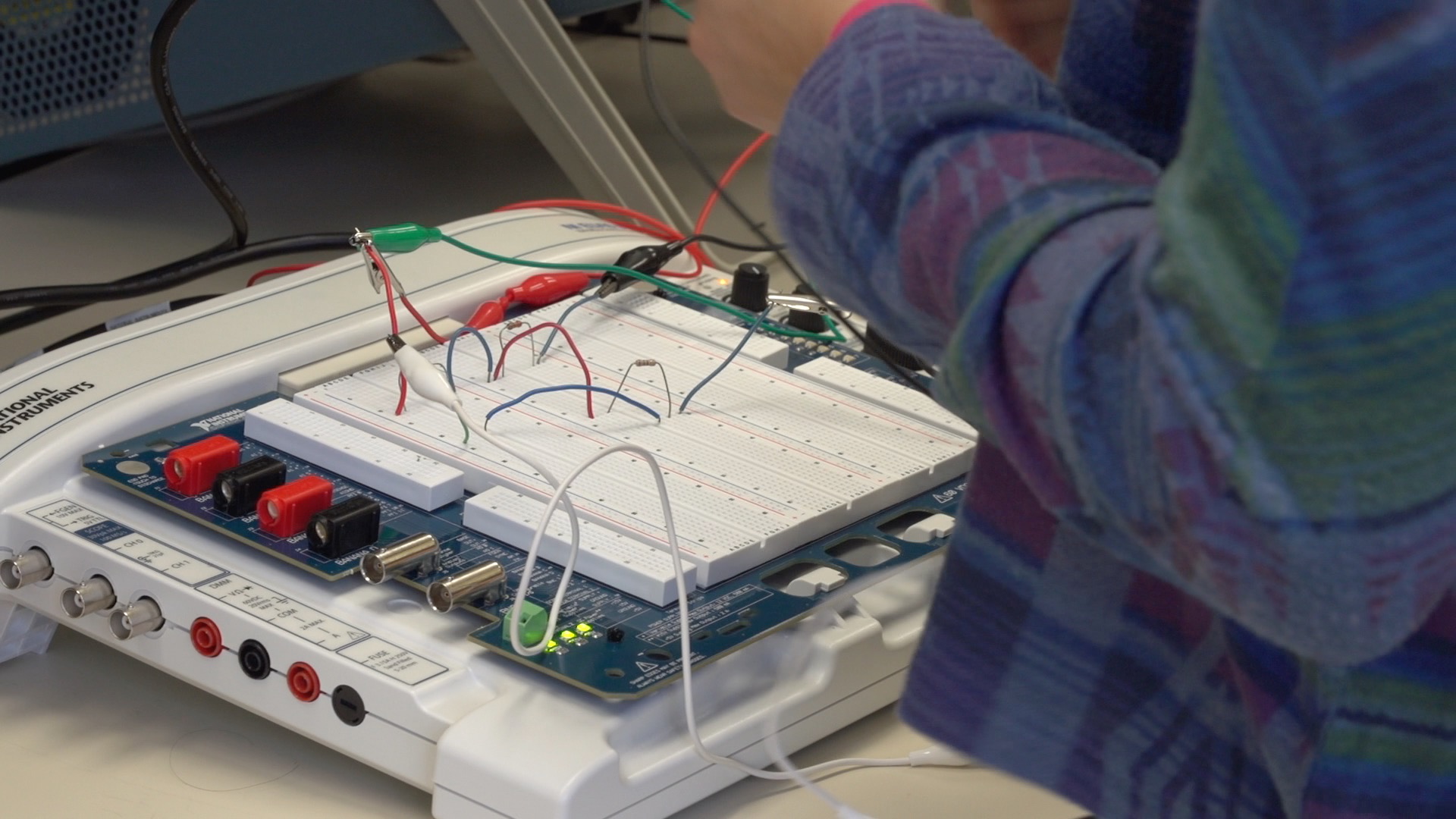Electrical Engineering

Why Choose Our Program?
From electric motors and navigation systems to power generating equipment and the electrical components of vehicles and personal devices, electrical engineers are behind the design and production of electrical and electronic devices which transform society. They are the innovators and designers that create and maintain systems, working on everything from the nation’s power grid to the microchips inside our cell phones and smartwatches.
JU’s Electrical Engineering major prepares students to design, develop, test, and manage electrical equipment manufacturing. It combines creativity, knowledge, and analytical tools to complete the difficult task of shaping an idea into reality. Through design projects integrated into the curriculum, JU electrical engineers learn how to design, develop, test, and supervise the manufacturing of electrical equipment, such as electric motors, radar and navigation systems, communications systems and power generation equipment.

Electrical EngineeringCurriculum
Our students immerse themselves into a design-based focus while taking core engineering courses to reinforce fundamental engineering concepts necessary to develop feasible, sustainable, and eco-friendly solutions to real problems.
The entire curriculum encourages students to fulfill their potential by engaging them in experiences where they “learn and apply” and “design and build.” This contrasts with most traditional engineering programs in which students spend their semesters taking math and science prerequisites before they are challenged with real engineering problems. All JU engineering students will graduate with a 6 Sigma Yellow Belt Certificate.
Possibilities are Endless
Electrical engineers make a difference by creating products and technologies that meet human needs and improve their lives. By designing every product with electrical power, electrical engineers have helped humankind.
JU’s fundamental yet comprehensive Electrical Engineering degree is the gateway to developing solutions for climate change, world hunger, health care, energy, and transportation. Engineering students have participated in internships with Johnson and Johnson Vision, the Jacksonville Transportation Authority, JEA, CSX, the US Department of Energy and the US Army Corps of Engineers, National Science Foundation (NSF), and Research Experiences for Undergraduates (REU).
Request for Information
Contact Information School of Engineering & Technology
Jacksonville University
2800 University Blvd N
Jacksonville, FL 32211
